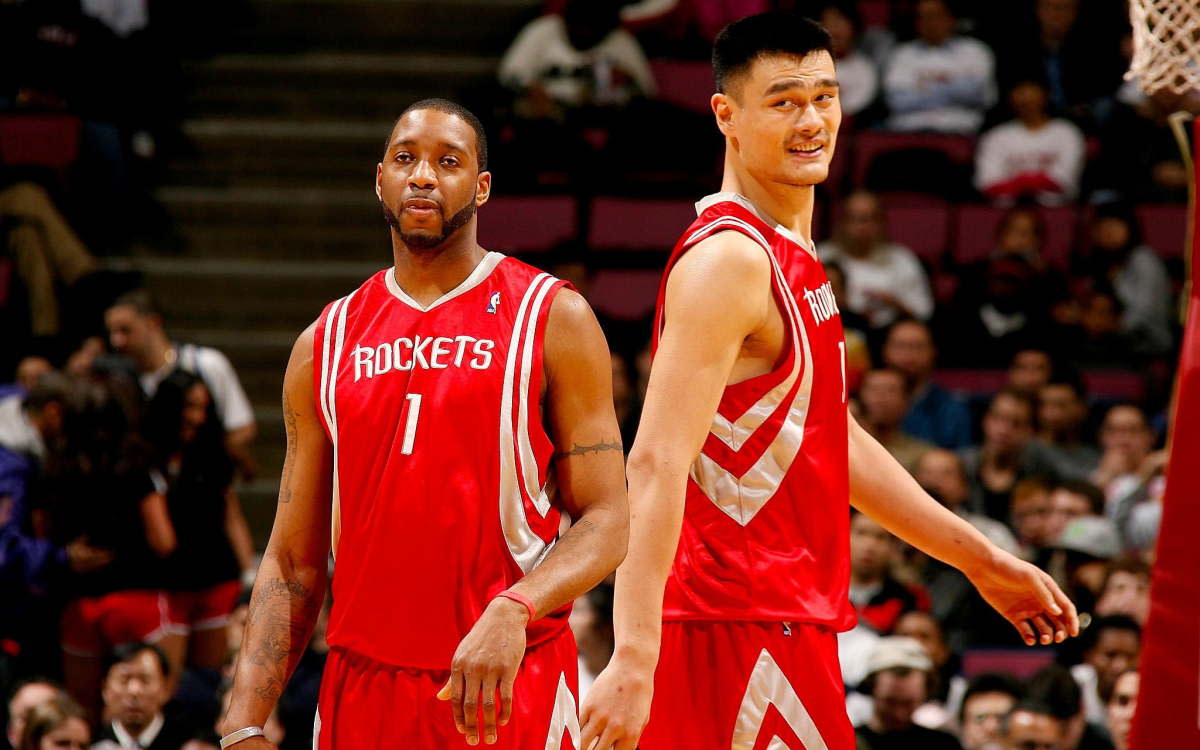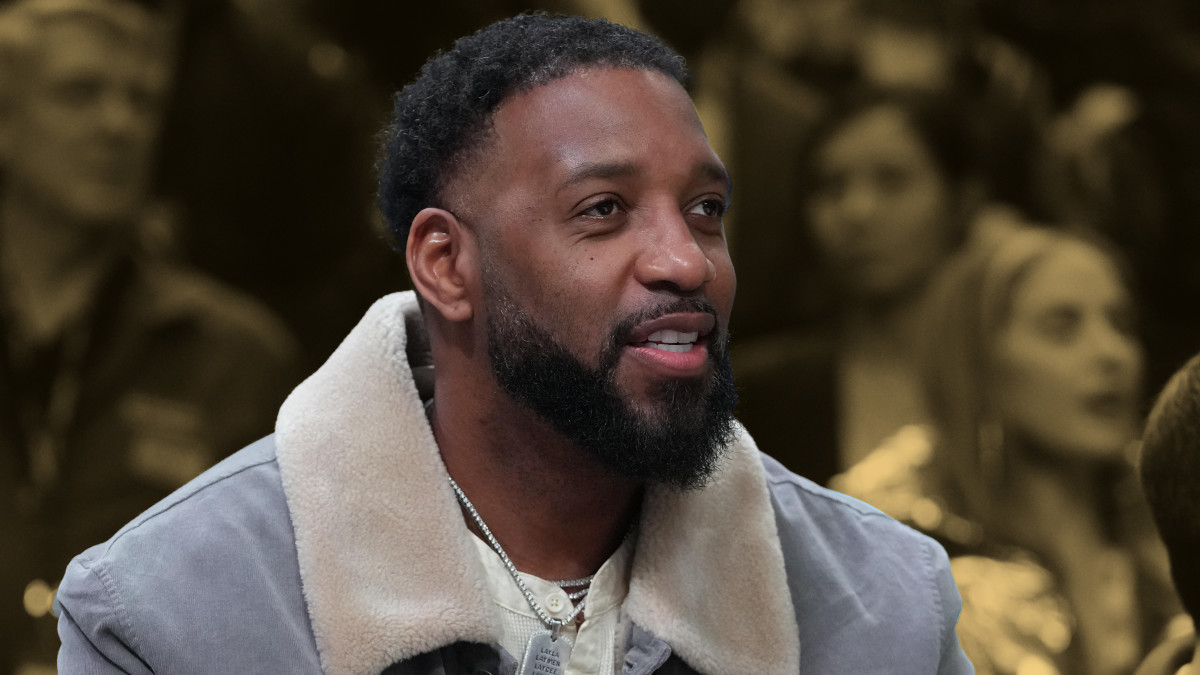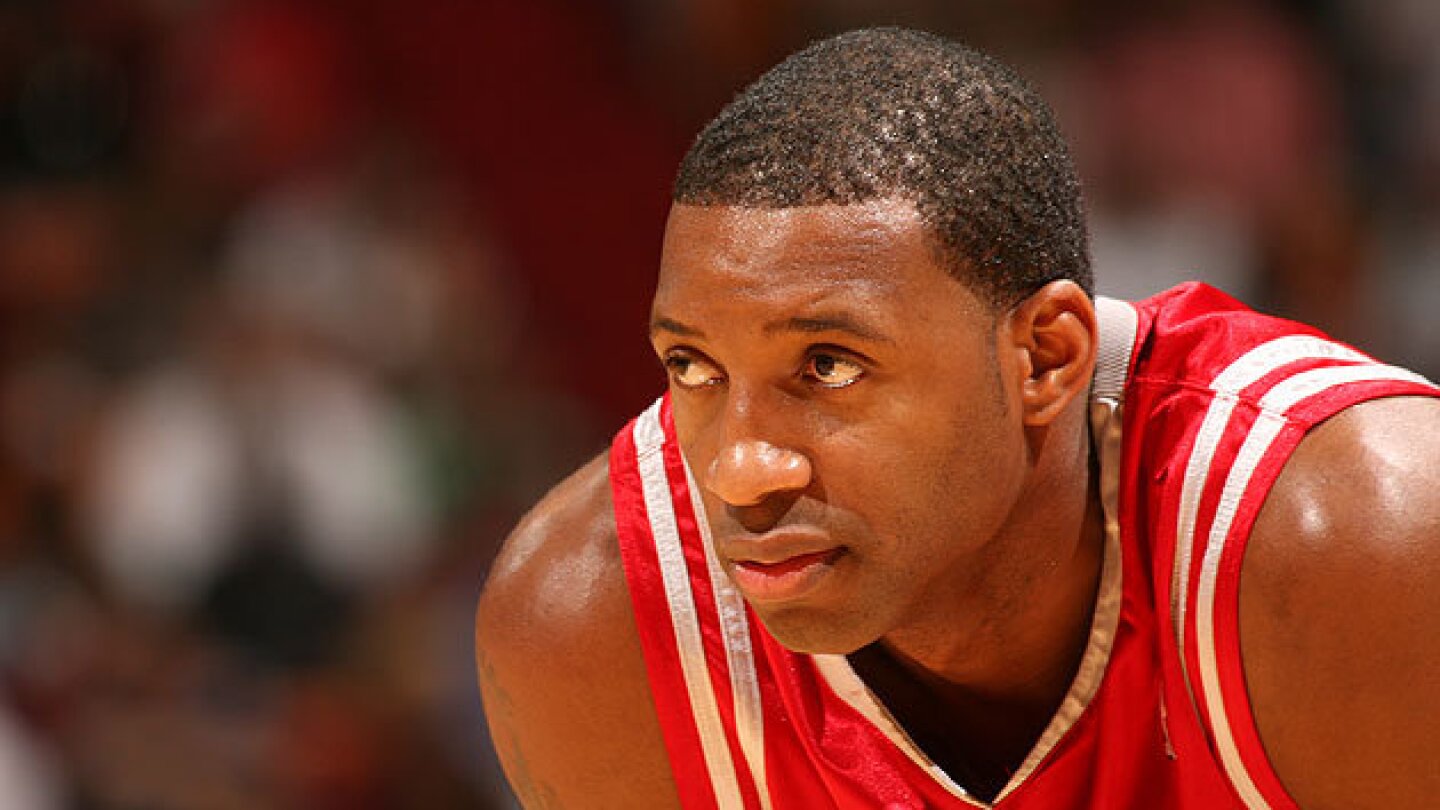However, Tracy McGrady, one of the game’s most celebrated talents, challenges this conventional wisdom with a provocative stance that adds a rich layer to the dialogue on sports excellence.

Tracy McGrady Challenges Views on Greatness
Tracy McGrady’s perspective brings a fresh and often overlooked angle to the discussion—luck. According to McGrady, luck plays a pivotal role in defining a player’s career and legacy. This idea diverges from the traditional view that winning championships is the ultimate measure of a player’s greatness. McGrady eloquently points out, “Luck has a lot to do with this, man. In media and fans’ eyes today, greatness is measured by winning.”
His argument is not without merit. McGrady highlights how players’ careers can diverge dramatically based on the teams they end up with. He provocatively asks whether Stephen Curry would still be considered a top 10 player of all time if he had played his entire career with a less successful team like the Charlotte Hornets.
This hypothetical scenario underscores the impact of team dynamics and organizational success on a player’s public and historical standing.
Tracy McGrady, Talent Over Championship Rings
Tracy McGrady’s insights are rooted in his own experiences and observations of other legendary players who have not secured a championship title. Icons like Charles Barkley, Patrick Ewing, Reggie Miller, Allen Iverson, and Carmelo Anthony, though lacking in championship rings, are celebrated for their undeniable skill and impact on the game.
Tracy McGrady himself, a 2-time scoring champion and 7-time NBA All-Star, knows all too well the challenges of competing without a star-studded supporting cast.
He stresses the importance of recognizing the individual contributions and talents of players irrespective of their championship wins. This viewpoint encourages fans and analysts alike to consider a more nuanced appreciation of sports greatness, one that acknowledges the serendipity of successful team alignments as well as personal excellence.

Tracy McGrady’s Legacy, A Case Study in Greatness Without Gold
Beyond his theoretical assertions, Tracy McGrady’s career offers a practical example of his philosophy. Known for his scoring prowess and dynamic play, McGrady never had the opportunity to play with a team like the Shaquille O’Neal and Kobe Bryant Lakers or the star-laden Golden State Warriors. His time with the Houston Rockets, alongside Yao Ming, was marked by promising potentials that were ultimately curtailed by injuries.
This aspect of his career highlights the unpredictability and the often harsh realities of professional sports, where external circumstances like injuries can derail even the most promising careers. Tracy McGrady’s journey through the NBA, filled with personal accolades but devoid of championship glory, serves as a testament to his belief that greatness transcends trophies.
Tracy McGrady dropped Kobe and hit the bucket. Kobe wasn’t having any of that. pic.twitter.com/eLGzmP8U8U
— Real Hoops©️ (@OnlyHooops) February 26, 2020
Reggie Miller Redefines Greatness Criteria
Adding to the richness of this discussion, Reggie Miller, another NBA luminary known for his clutch performances, shares his perspective on greatness. For Miller, the pursuit of championships, while central, is not the sole measure of greatness. “In my case, greatness is defined by championship(s), but also competing to win those chips,” Miller asserts.
Reggie Miller’s emphasis on competition and the drive to excel against the best speaks to a broader definition of greatness—one that celebrates resilience, effort, and the courage to compete at the highest level, regardless of the final outcome.

Tracy McGrady and Reggie Miller Redefine Greatness
The insights from Tracy McGrady and Reggie Miller provide a compelling narrative that challenges the conventional benchmarks of NBA greatness. By considering factors like luck, team context, and personal resilience, their viewpoints encourage a more comprehensive evaluation of what makes a player truly great.
This conversation not only enriches the discourse surrounding professional basketball but also serves as a reminder of the complex interplay of factors that influence any athletic career. In redefining greatness, McGrady and Miller invite fans and pundits to look beyond the scoreboard and appreciate the broader spectrum of human endeavor and achievement in sports.










